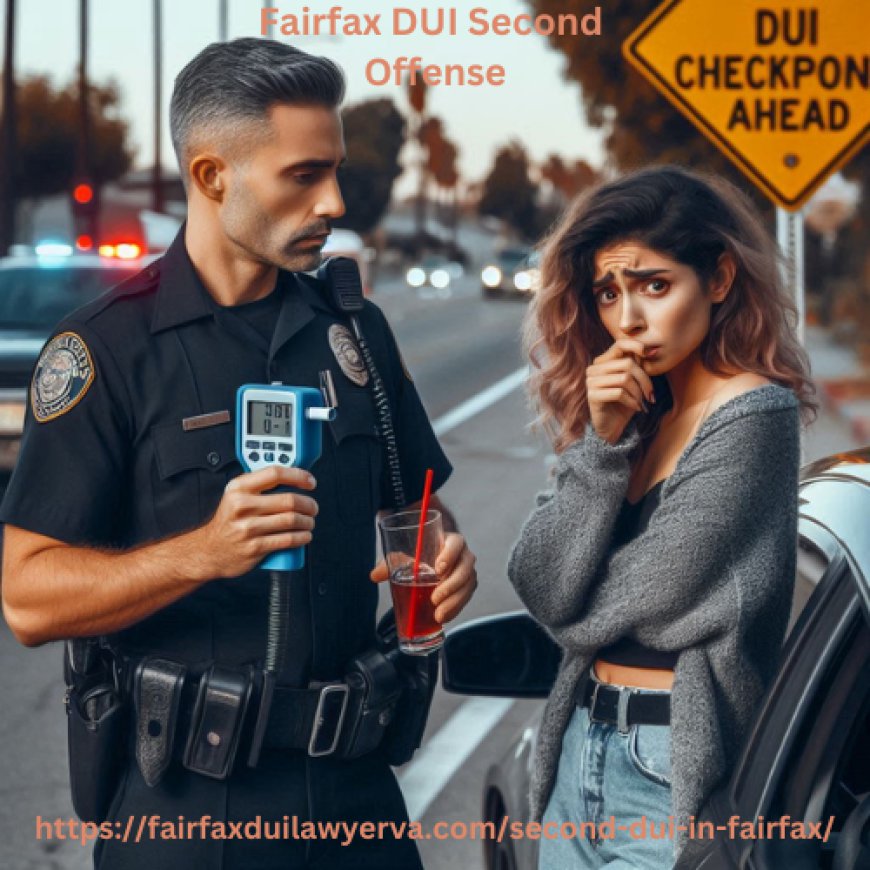Fairfax DUI Laws: What a Second Offense Means for Drivers

Introduction
A second DUI offense in Fairfax, VA, is a serious matter with substantial legal, financial, and personal consequences. Virginia has some of the strictest DUI laws in the country, and the penalties for repeat offenses are designed to deter drivers from getting behind the wheel while impaired. Understanding the legal implications of a second DUI charge is essential for protecting your rights and preparing for the potential challenges ahead. This article provides an overview of Fairfax DUI Second Offense laws and explores what a second offense means for drivers, including penalties, legal options, and tips for minimizing the impact of such charges.
The Legal Framework for a Second DUI Offense in Fairfax
In Virginia, DUI laws prohibit operating a motor vehicle with a blood alcohol concentration (BAC) of 0.08% or higher for drivers aged 21 and older. A second DUI offense is treated more severely than a first, with harsher penalties designed to emphasize the seriousness of repeat violations. The law takes into account the timeframe between offenses, with shorter intervals resulting in stricter consequences.
Aggravating Factors
Certain factors can escalate the severity of a second DUI charge, including:
-
A BAC of 0.15% or higher
-
An accident resulting in injury or property damage
-
The presence of a minor in the vehicle
-
Penalties for a Second DUI Offense
1. Jail Time
-
Mandatory jail time is a key feature of second DUI penalties. The duration depends on the timeframe between offenses:
-
If the second offense occurs within five years of the first, the mandatory minimum jail sentence is 20 days.
-
If the second offense occurs within 10 years, the mandatory minimum is 10 days.
-
For drivers with a BAC of 0.15% to 0.20%, an additional mandatory jail sentence of 10 days applies. If the BAC exceeds 0.20%, the additional jail time increases to 20 days.
2. Fines and Fees
Fines for a second DUI offense range from $500 to $2,500. Courts may also impose additional financial penalties, including restitution for any damages caused by the offense.
3. License Suspension
A second DUI conviction results in a three-year license suspension. After one year, drivers may be eligible for restricted driving privileges, but this typically requires the installation of an ignition interlock device (IID).
4. Ignition Interlock Device Requirement
To be eligible for restricted driving privileges, the IID is a requirement. If alcohol is discovered, this device detects the driver's blood alcohol content (BAC) and stops the car from starting.
5. Enrollment in Alcohol Education Programs
Drivers convicted of a second DUI are often required to complete an alcohol safety or substance abuse program as part of their sentence. This program aims to address underlying issues related to alcohol use and prevent future offenses.
Legal Options for Drivers Facing a Second DUI
1. Hiring an Experienced DUI Attorney
A skilled DUI attorney can evaluate the circumstances of your case, identify potential defenses, and work to reduce the severity of penalties. Common defenses include challenging the accuracy of BAC testing equipment, the legality of the traffic stop, or the administration of field sobriety tests.
2. Exploring Plea Bargains
In some cases, an attorney may negotiate a plea bargain with the prosecution, resulting in reduced charges or penalties. This option may not eliminate all consequences but can significantly lessen their impact.
3. Requesting a Restricted License
Drivers who have had their licenses suspended may ask the court to limit their driving rights. This permits a restricted amount of driving for necessary purposes, such going to work, school, or the doctor.
Steps to Minimize the Impact of a Second DUI
-
Comply with Court Orders: Attend all court hearings, pay fines promptly, and adhere to probation terms to avoid additional penalties.
-
Enroll in Alcohol Education Programs: Proactively enrolling in a program demonstrates a commitment to change and can positively influence sentencing outcomes.
-
Install an Ignition Interlock Device: If eligible for restricted driving privileges, comply with IID installation requirements to regain limited mobility.
-
Avoid Further Offenses: Taking steps to prevent future DUIs is critical for rebuilding trust and avoiding escalated legal consequences.
Conclusion
A Fairfax DUI Second Offense carries serious penalties that can affect your freedom, finances, and driving privileges. Understanding the legal framework and consequences is crucial for navigating this challenging situation. With the help of an experienced attorney, a proactive approach, and a commitment to change, it is possible to minimize the impact of a second DUI charge. Ultimately, the best way to avoid these severe consequences is to adopt responsible driving habits and make better choices moving forward.

 joeaurora
joeaurora